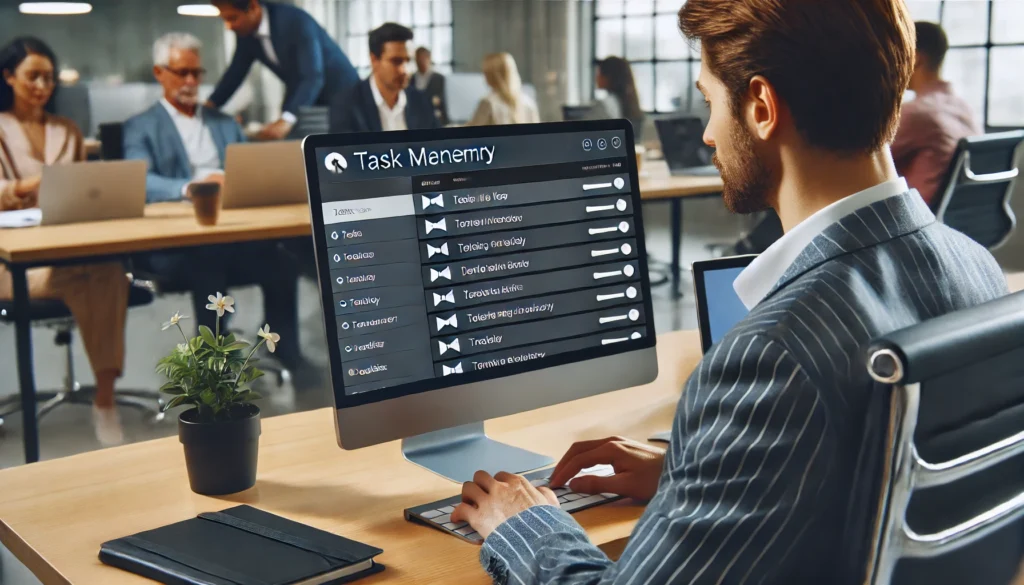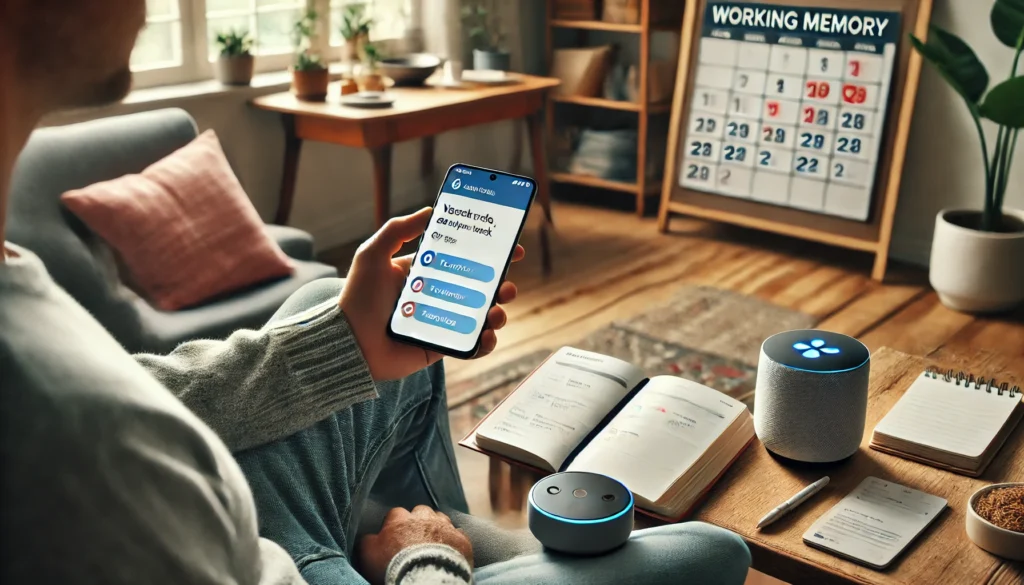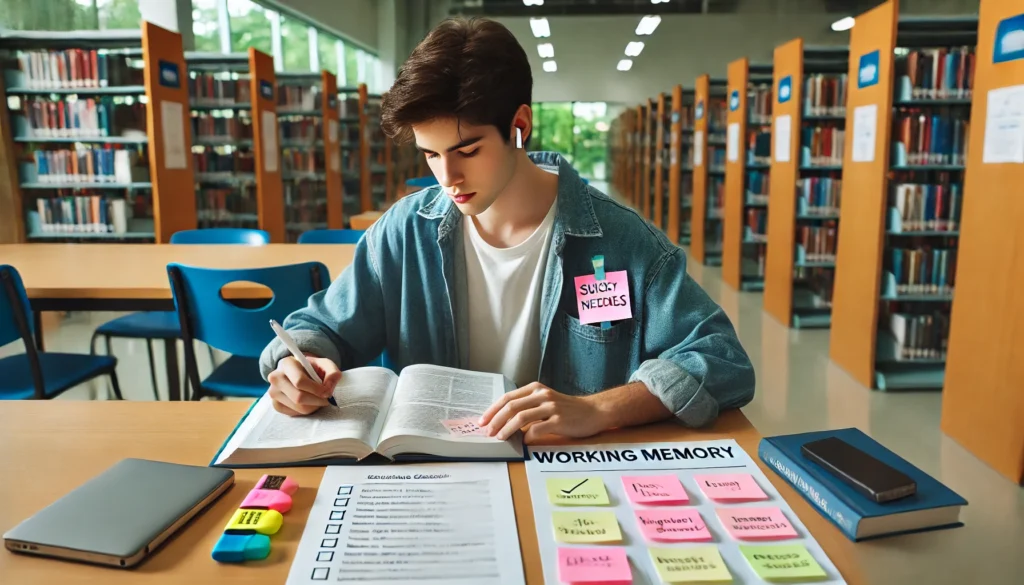Working memory refers to the ability to hold and manipulate information over short periods. It’s akin to a mental sticky note that helps us keep track of tasks, follow conversations, and solve problems. However, for some individuals, this cognitive function doesn’t operate optimally, leading to difficulties in everyday tasks and learning processes.
You may also like: Effective Techniques for Memory Practice Improvement
The Functionality of Working Memory
Working memory serves as a temporary holding space for information that we need for immediate tasks. Whether it’s remembering a phone number long enough to dial it or keeping track of the steps in a recipe, this memory system is critical. When it functions well, it allows for the smooth execution of tasks. However, when impaired, it can lead to challenges such as forgetfulness and difficulty concentrating.
The Link Between Working Memory and Learning
For students, working memory is essential for academic success. It impacts the ability to follow multi-step instructions, solve mathematical problems, and comprehend complex reading materials. Difficulties in working memory can manifest as academic struggles, often requiring specific educational interventions to support learning.
Identifying Working Memory Deficits
Recognizing working memory challenges can be the first step toward effective management. Symptoms can include forgetfulness, difficulty following conversations, and trouble with organizing tasks. Formal assessments, often conducted by psychologists or educational specialists, can help diagnose specific working memory issues, paving the way for targeted strategies.
Historical Context and Current Trends
Historically, the understanding of working memory has evolved from the broader concept of short-term memory. The distinction between these two emerged as researchers identified that working memory involves not just the retention but also the processing of information. This nuanced understanding has been crucial in developing targeted interventions for those facing working memory challenges.
Evolution of Working Memory Research
The study of working memory has its roots in the mid-20th century when psychologists began to differentiate it from short-term memory. This distinction highlighted working memory’s role in processing information, not just storing it. Over decades, research has expanded, leading to a deeper understanding of its components and how they interact with other cognitive functions.
Technological Advancements and Neuroscience
In recent years, the focus has shifted towards integrating technology and neuroscience to devise innovative solutions. Cognitive training apps, brain stimulation techniques, and educational interventions are gaining traction, offering promising avenues for improving working memory. These advancements have opened new doors for personalized interventions, making it easier to address individual needs.
The Role of Genetic and Environmental Factors
Modern research also explores the interplay between genetic and environmental factors in working memory performance. While genetics can predispose individuals to certain cognitive strengths or weaknesses, environmental influences such as education, nutrition, and stress levels play a crucial role in shaping working memory capabilities.

Practical Accommodations for Working Memory Challenges
Effective accommodations are essential for individuals struggling with working memory challenges, enabling them to navigate their environments more efficiently. Below are some strategies that can be implemented in various settings:
Educational Accommodations
In educational environments, tailored support can significantly impact students with working memory difficulties. Teachers and educators can adopt several strategies to enhance learning experiences:
- Chunking Information: Breaking down complex information into smaller, manageable units can aid in comprehension and retention. This approach helps students process information without feeling overwhelmed, making it easier to recall later.
- Visual Aids and Graphic Organizers: Utilizing diagrams, charts, and visual aids can help reinforce learning and facilitate memory retention. Visual tools provide a concrete reference, aiding students in organizing and recalling information effectively.
- Repetition and Review: Frequent review and reinforcement of information can strengthen memory pathways, making recall easier. Regular practice and review sessions help solidify knowledge, ensuring that information stays fresh and accessible.
Workplace Accommodations
In the workplace, individuals with working memory challenges can benefit from accommodations that streamline tasks and enhance productivity:
- Task Management Tools: Digital tools like task lists and reminders can assist in organizing and prioritizing tasks. These tools help manage workloads by breaking tasks into smaller, more manageable parts, reducing cognitive overload.
- Written Instructions: Providing written instructions or notes can serve as a reference point, reducing reliance on memory. Written materials allow employees to revisit instructions as needed, minimizing errors and increasing efficiency.
- Flexible Work Schedules: Allowing for flexibility in work hours or breaks can help individuals manage cognitive fatigue and maintain focus. Flexibility can lead to better concentration and productivity, accommodating individual cognitive rhythms.
Everyday Life Accommodations
In daily life, practical strategies can be employed to ease the burden on working memory:
- Mindfulness and Meditation: Practices such as mindfulness and meditation can enhance focus and reduce cognitive overload, improving working memory capacity. These techniques promote mental clarity and relaxation, aiding in better memory performance.
- Healthy Lifestyle Choices: Adequate sleep, regular physical activity, and a balanced diet are foundational for optimal cognitive function. These lifestyle choices support brain health, leading to improved working memory and overall cognitive performance.
- Memory Aids: Utilizing tools like calendars, alarms, and digital assistants can help manage daily tasks and appointments. These aids serve as external memory supports, freeing up cognitive resources for other tasks.
Memory Improvement Tips
Beyond accommodations, adopting specific techniques can lead to lasting improvements in working memory. Here are some evidence-based tips:
Cognitive Training
Engaging in cognitive training exercises designed to enhance working memory can yield significant benefits. Brain training apps and games that challenge memory and attention can help strengthen neural connections over time. These exercises are designed to be engaging yet challenging, promoting continuous cognitive growth.
Nootropics and Supplements
The burgeoning field of nootropics offers potential for cognitive enhancement. Supplements such as Omega-3 fatty acids, Bacopa Monnieri, and Ginkgo Biloba have shown promise in supporting brain health and improving memory function. However, individuals should consult healthcare professionals before starting any supplement regimen to ensure safety and efficacy.
Neuroplasticity and Learning
The brain’s remarkable ability to reorganize itself by forming new neural connections, known as neuroplasticity, is key to improving working memory. Engaging in new learning experiences, such as acquiring a new skill or language, can stimulate neuroplasticity and boost memory capacity. Continuous learning keeps the brain active and adaptive, enhancing its ability to process and retain information.

Future Implications and Innovations
As research in neuroscience and cognitive science progresses, the future holds exciting possibilities for addressing working memory challenges. Innovations such as transcranial magnetic stimulation (TMS) and advanced neurofeedback techniques are being explored for their potential to enhance cognitive functions. Moreover, the integration of artificial intelligence in cognitive training programs could revolutionize personalized interventions, offering tailored solutions for individuals with working memory difficulties.
Emerging Technologies in Cognitive Enhancement
Technological advancements continue to push the boundaries of cognitive enhancement. Emerging technologies like virtual reality (VR) and augmented reality (AR) are being explored for their potential in cognitive training, offering immersive and interactive experiences that can enhance working memory.
The Role of Artificial Intelligence
Artificial intelligence (AI) is poised to revolutionize cognitive training by offering personalized and adaptive learning experiences. AI-driven platforms can analyze individual performance and tailor exercises to target specific working memory challenges, optimizing learning outcomes.
Ethical Considerations and Accessibility
As these innovations develop, ethical considerations and accessibility remain critical. Ensuring that cognitive enhancement technologies are accessible to diverse populations and used ethically is essential for maximizing their benefits and minimizing potential risks.

Conclusion
Addressing working memory challenges requires a multifaceted approach that combines practical accommodations with strategies for memory improvement. By understanding the intricacies of working memory and implementing effective solutions, individuals can overcome cognitive hurdles and enhance their quality of life. As we continue to unravel the complexities of the brain, the future promises even more innovative and effective tools for managing working memory challenges.
By weaving together historical context, current trends, and future implications, we gain a comprehensive understanding of working memory challenges and the pathways to overcoming them. Whether you are a health and wellness coach, a science journalist, or a biohacker, these insights serve as a valuable resource for optimizing cognitive performance and well-being.
The Journey Towards Cognitive Empowerment
Understanding and addressing working memory challenges is a journey towards cognitive empowerment. With the right knowledge and tools, individuals can enhance their mental capabilities, leading to improved performance in various aspects of life.
The Role of Community and Support
Community and support play a crucial role in managing working memory challenges. Sharing experiences and strategies with others facing similar challenges can provide encouragement and foster a sense of belonging, contributing to successful outcomes.
The Promise of Continued Research
Continued research in neuroscience and cognitive science promises to unlock new insights and solutions for working memory challenges. As we push the boundaries of what is possible, we move closer to a future where cognitive enhancement is accessible to all, paving the way for a more inclusive society.
Further Reading:
Strategies to Build Working Memory
How to Help Kids With Working Memory Issues
Working Memory Difficulties: Strategies for the Classroom
Important Note: The information contained in this article is for general informational purposes only, and should not be construed as health or medical advice, nor is it intended to diagnose, prevent, treat, or cure any disease or health condition. Before embarking on any diet, fitness regimen, or program of nutritional supplementation, it is advisable to consult your healthcare professional in order to determine its safety and probable efficacy in terms of your individual state of health.
Regarding Nutritional Supplements Or Other Non-Prescription Health Products: If any nutritional supplements or other non-prescription health products are mentioned in the foregoing article, any claims or statements made about them have not been evaluated by the U.S. Food and Drug Administration, and such nutritional supplements or other health products are not intended to diagnose, treat, cure, or prevent any disease.


